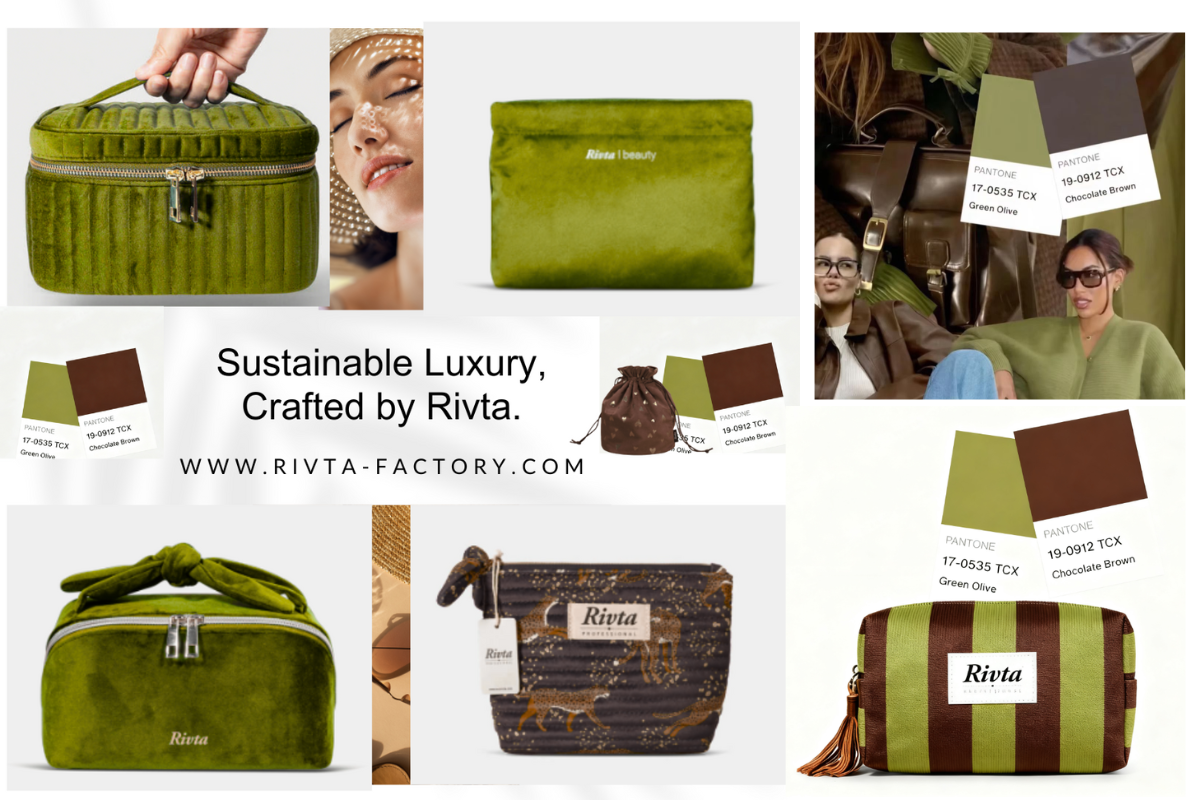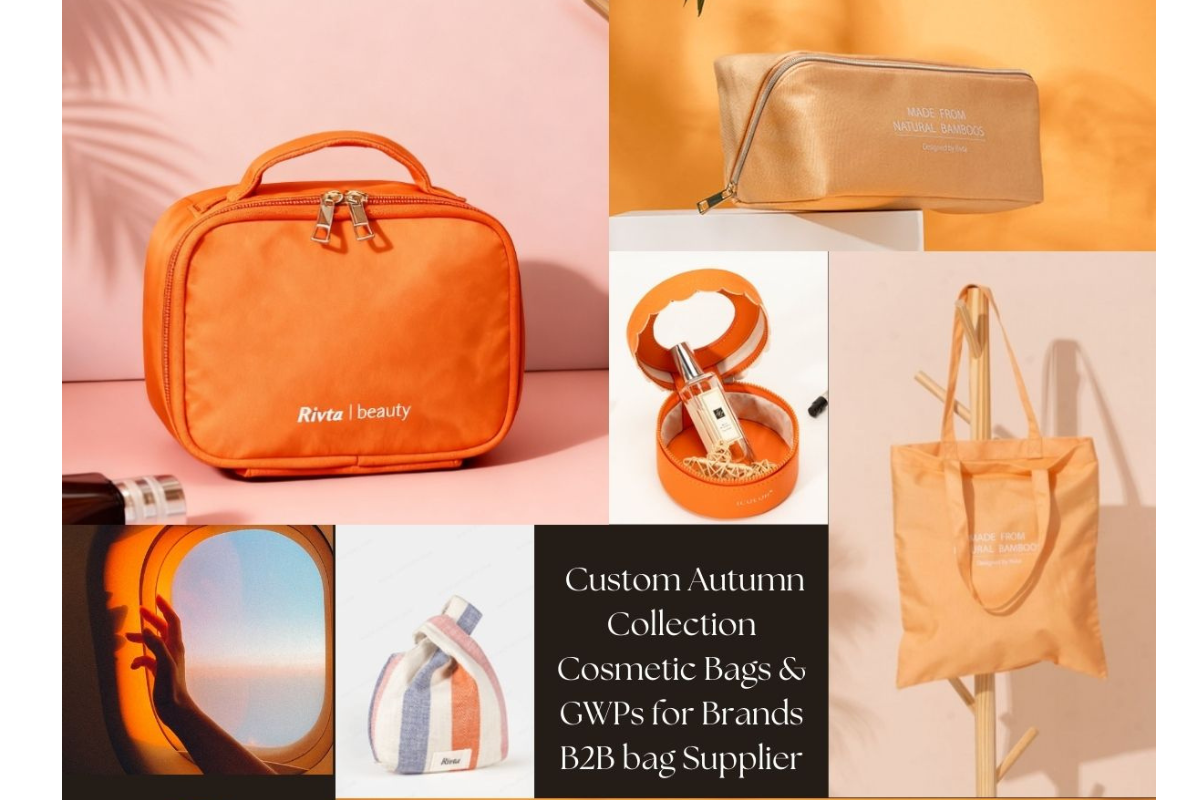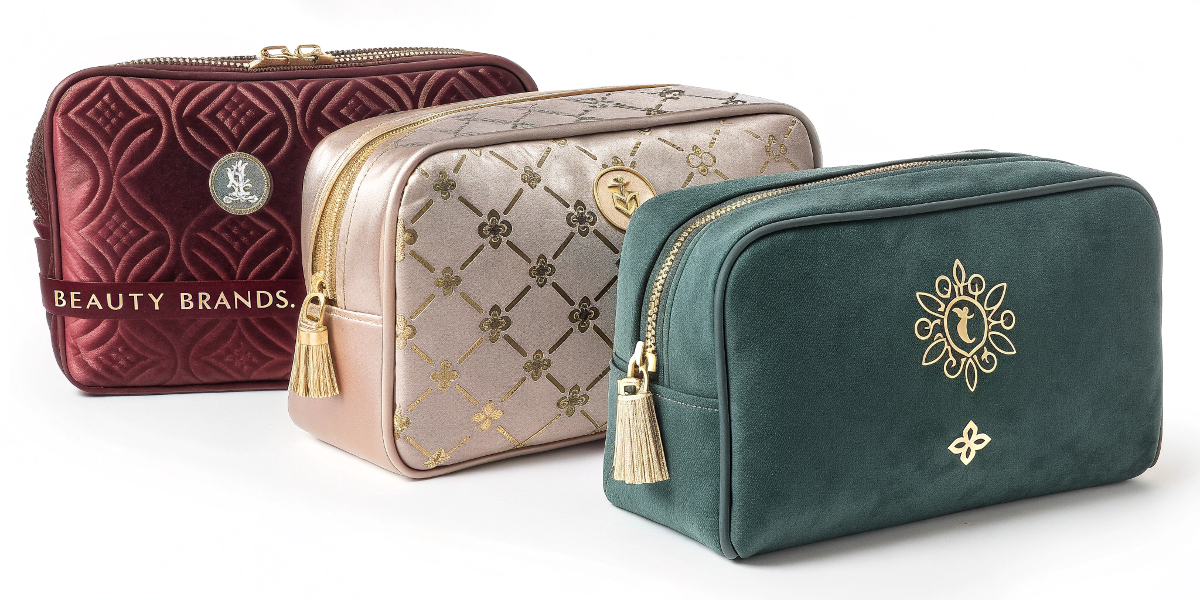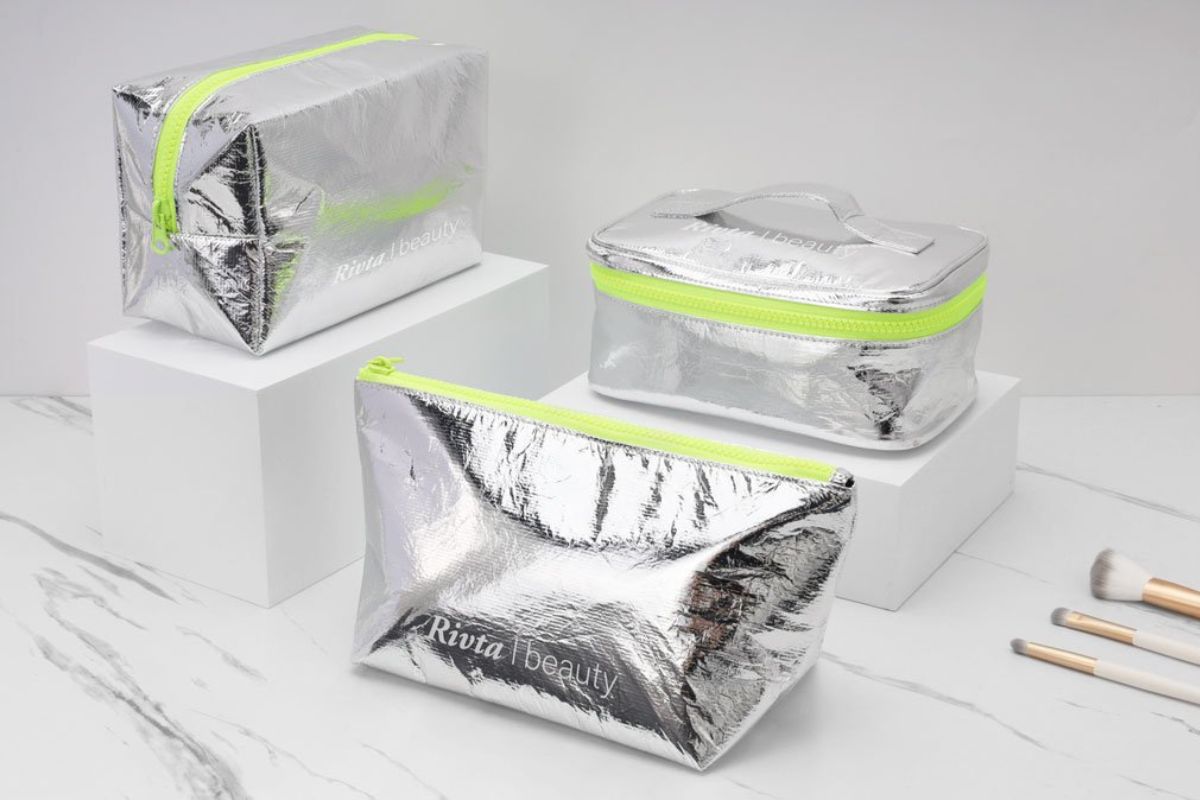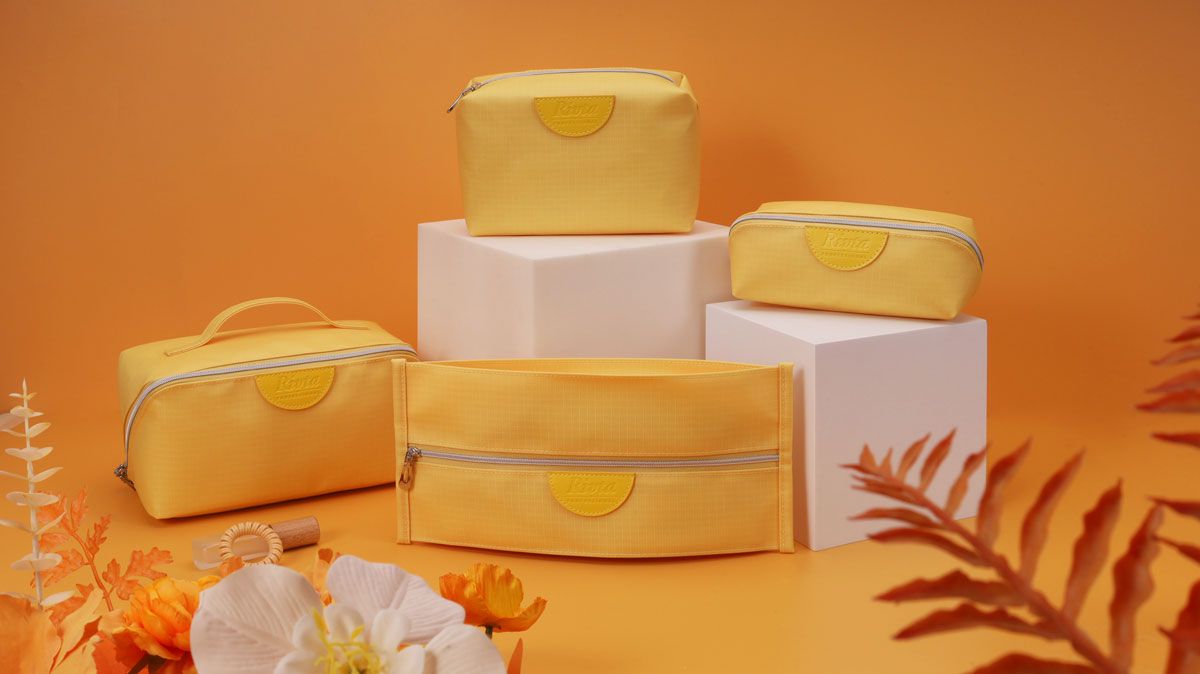A Buyer's Checklist: 10 Questions to Ask Your Next Toiletry Bag Manufacturer
You need a reliable manufacturer for your new toiletry bag line. But you fear that asking the wrong questions will lead to poor quality, missed deadlines, and hidden costs.
To properly vet cosmetic bag suppliers, ask about their quality control, material certifications (like GRS), MOQ, prototyping process, and lead times. These questions ensure you find a transparent, high-quality partner and avoid costly mistakes before production even begins.
Choosing a manufacturing partner is one of the most critical decisions you'll make for your brand. In my 15 years developing beauty and lifestyle products, I've seen how the right partnership can make a launch soar, while the wrong one can ground it before it ever takes off. It all comes down to asking the right questions before you commit. Think of it as a job interview for one of the most important roles in your company. At Rivta, we believe a strong partnership starts with open communication. So, I’ve put together the essential questions you need to ask to find a manufacturer who shares your commitment to quality and vision.
What Should You Look For in a High-Quality Toiletry Bag?
You have a perfect design in mind. But you worry a manufacturer might cut corners on materials or construction, damaging your brand's reputation before it even starts.
Look for three key things: durable and appropriate materials, high-quality hardware like zippers, and excellent craftsmanship in the stitching. A good cosmetic bag supplier must be able to deliver on all three, consistently and transparently.
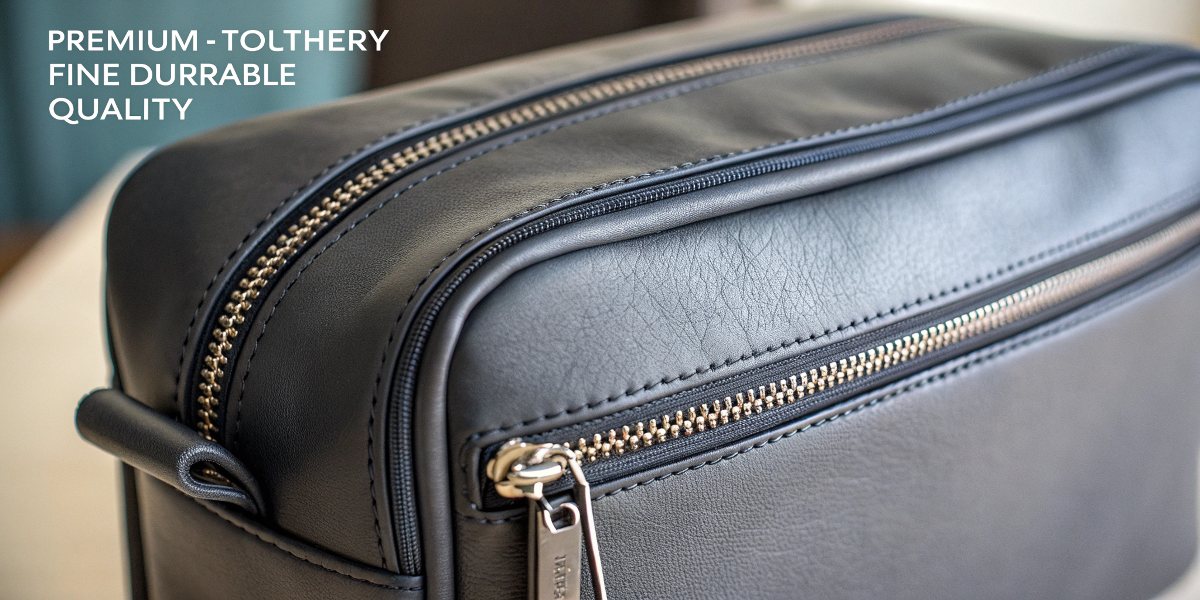
When I develop a new bag, I don't just think about the design; I think about how it will hold up after a year of being tossed into a suitcase. The quality is in the details. The fabric must be right for the job—is it a waterproof recycled polyester? Is it a sturdy, sustainable canvas? This is why the first questions I ask a potential partner are always about their process and materials. You need to verify their capabilities, not just take their word for it. This isn't about distrust; it's about building a foundation of trust through transparency. A great partner will be happy to share this information.
Your Quality Vetting Checklist
Ask these direct questions to gauge a supplier's commitment to quality.
- Question 1: What are your primary material options, and can you provide certifications (e.g., GRS)? A reputable cosmetic bag supplier will have documentation for sustainable materials like GRS-certified RPET or organic cotton.
- Question 2: What are your quality control (QC) procedures during production? Ask about their inspection checkpoints for raw materials, in-process goods, and final products.
- Question 3: Can you provide a detailed breakdown of your prototyping and sampling process? Knowing the cost, timeline, and revision policy for samples prevents surprises later.
What is a TSA-Approved Toiletry Bag?
You want to design a travel-friendly bag. But you aren't sure of the exact TSA rules, and designing the wrong bag would be a costly mistake for your customers.
A TSA-approved toiletry bag must be a single, transparent, quart-sized (or one-liter) bag with a zip-top closure. The liquids inside must be in containers of 3.4 ounces (100ml) or less, following the 3-1-1 rule.
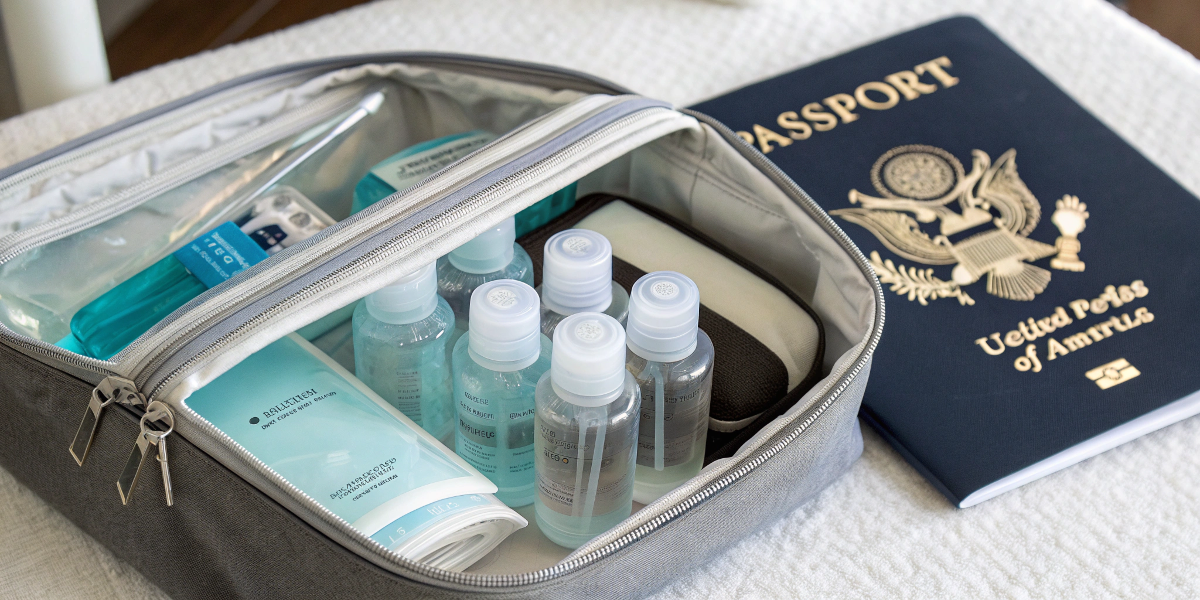
The 3-1-1 rule is non-negotiable for carry-on luggage, so you have to get it right. But "TSA-approved" is more than just a clear bag. It's about precision. The size must be correct, and the material must be both transparent and durable enough for travel. As a product developer, this means I need to trust my manufacturing partner to be incredibly precise. The material choice is also critical. A cheap, flimsy PVC might tear, while a high-quality, flexible TPU is more durable and has a more premium feel. You should compare several cosmetic bag suppliers to see who has direct experience producing these specific, regulated items.
Questions for Travel-Ready Manufacturing
Ensure your manufacturer can meet the specific demands of travel products.
- Question 4: Do you have experience producing bags that meet specific regulatory standards, like TSA guidelines? Ask them for examples of similar products they've made.
- Question 5: What transparent materials do you offer, like PVC or TPU, and what are their durability specs? TPU is often a more eco-friendly and durable choice than standard PVC.
- Question 6: What are your Minimum Order Quantities (MOQs)? This is a critical question. You need to know if their minimums align with your business needs, especially for a niche product.
What Basics Should a Good Wash Bag Contain?
You are designing a bag with specific compartments. You need a manufacturer who understands the function of the bag and can execute complex designs with precision and care.
A good wash bag is designed to hold essentials like a toothbrush, cleansers, and shampoo. It needs smart organizational features like elastic loops, waterproof pockets, and separate compartments to keep things neat and prevent spills.
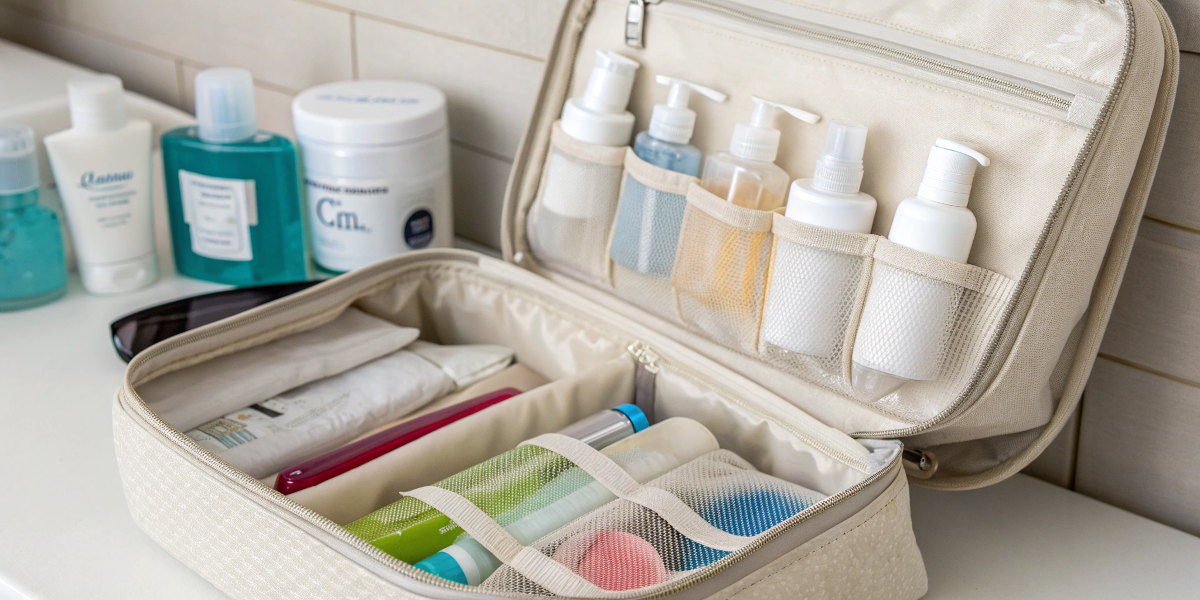
The best toiletry bags are designed from the inside out. They anticipate what the user will carry and provide a smart, logical place for everything. This requires more complex construction than a simple pouch. You need a manufacturer with skilled workers who can handle detailed sewing, like adding waterproof linings or creating precise elastic brush holders. When I work on a design with these features, I need to know that the factory has the technical skill to bring it to life flawlessly. A poorly sewn divider or a leaky waterproof pocket defeats the entire purpose of the design. This is where you dig into their production capabilities.
Questions for Complex Bag Construction
Get a clear picture of their technical skills and production timeline.
- Question 7: Can you describe your factory's production capabilities for complex designs with multiple compartments? This helps you understand if they are the right fit for your design's complexity.
- Question 8: What is your average production lead time after a sample is approved? This is crucial for planning your product launch and marketing calendar.
- Question 9: Who will be my main point of contact, and how will we communicate throughout production? A dedicated contact person who speaks your language fluently is essential for a smooth process.
What Should Be in a Toiletry Bag for a Modern Working Woman?
Your target customer is a busy professional. She needs a bag that is not just functional but also stylish, sustainable, and reflective of her personal brand.
A working woman’s toiletry bag is a multi-tasker. It holds daytime essentials, a makeup refresh kit, and travel-sized skincare. The bag itself should be chic, durable, and ideally, made with sustainable materials.
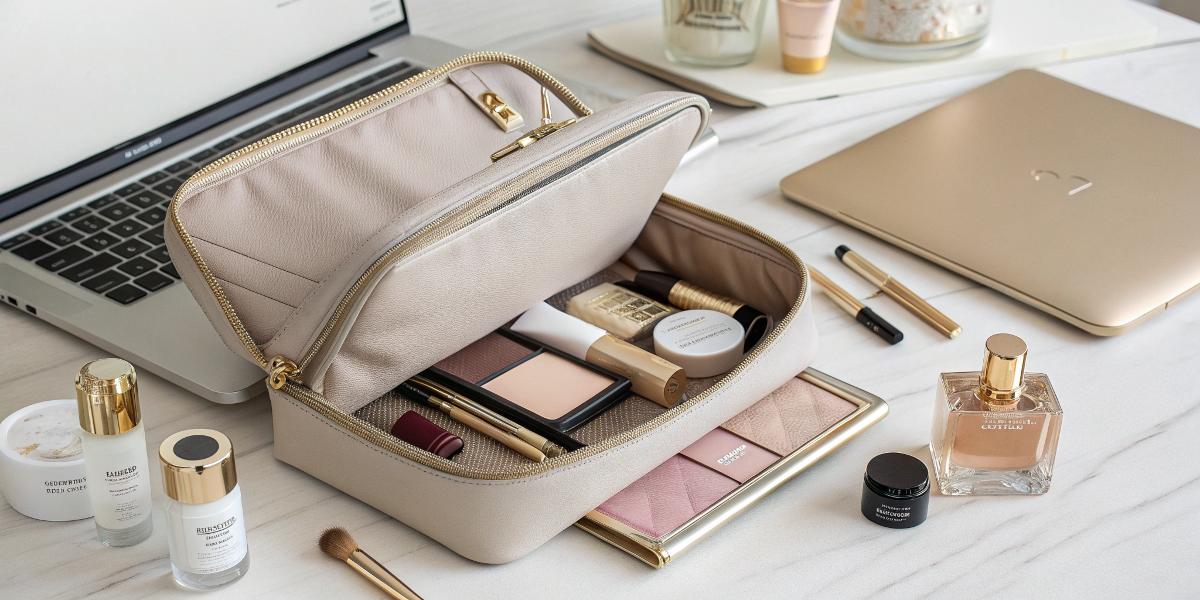
When you know your customer this well, your product becomes a part of their story. This customer appreciates quality, sustainability, and thoughtful design. Your choice of manufacturer is a direct reflection of these values. This is why our mission at Rivta focuses on "Innovative Materials, Green Future." This customer will notice if the bag is made from recycled materials. She will appreciate a custom-branded zipper pull. To serve this customer, you need a manufacturing partner who can handle custom branding and who shares your commitment to social and environmental responsibility. Your final question should be about their values, as this separates a mere supplier from a true partner.
The Final, Critical Question
This question tells you if you have found a true partner.
- Question 10: Can you tell me about your factory's social compliance and sustainability practices? A top-tier cosmetic bag supplier will be proud to share their BSCI audit or other certifications. A partner who invests in their people and the planet is one who will invest in the quality of your product.
Conclusion
Asking these ten questions gives you a clear picture of a manufacturer's capabilities. It helps you find a true partner who will build your vision with quality and care.
